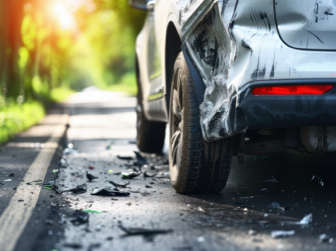Believe it or not, out of 11 million registered vehicles, less than 35% are insured. Although Car Insurance is not a legal requirement, having support to fall back on when the unexpected happens makes sense from a financial standpoint, whether you opt for top-of-the-line insurance cover or settle for more affordable options.
Discover how you’re affected without Car Insurance, the types of coverage available, and why having coverage has the power to help you when you need it most.
Car Insurance explained: why you absolutely need it
Uninsured motorists don’t realise the risks and impact that not having Car Insurance can have, both on themselves and others. The Automobile Association (AA) has expressed concern over this issue. With South African roads seeing around one million accidents annually, the chances of a crash involving an uninsured driver are alarmingly high.
Globally, data has shown that insurance policies help manage the risks faced by policyholders, which, ironically, encourages motorists to adopt more responsible driving habits. The AA points out, “The risk of not having vehicle insurance means that when an uninsured motorist is involved in a crash and they are at fault, they will have to pay for damages to both their own vehicle and the other vehicle out-of-pocket.” They further stress that uninsured drivers will bear the full burden of road-related consequences, leaving them financially worse off than if they had been insured.
The impact of not having Car Insurance in South Africa
If your car isn’t insured, you might think you’re saving a lot of money on premiums. But if you do have an accident, it could lead to serious financial trouble. With new vehicle prices soaring and the second-hand market booming, it’s easy to see why many opt out of insurance. Budgets are tight due to inflation, car options are endless, and everyday risks are often overlooked.
A lot can happen when you're on the road, at home, or even at the office. One day, you could be travelling, and your car could be involved in a minor accident, get stolen, or you could cause damage to another person’s property. This is why different types of insurance policies exist—they're designed to ensure your financial and coverage needs are met.
Types of insurance coverage
When it comes to your monthly or annual payment (premium), most insurance firms will offer coverage for one or more of the following:
- Accidental damage that either involves your car or someone else's
- If your car has been stolen or hijacked
- Natural events-related damage: Floods, hail, earthquakes, lightning, etc.
- Fire damage
- Miscellaneous damage - scratches or marks, falling objects or trees, etc.
- Damage to a third-party's property or vehicle.
However, the amount of coverage you’re guaranteed will depend on the type of Car Insurance you purchase.
Comprehensive
A Comprehensive Policy offers the highest level of protection, covering damage related to car theft, hijackings, natural events, fire, and accidental damage. Some policies may even include additional benefits for unique situations.
Third-Party Only with Fire and Theft
Third-Party Only with Fire and Theft: This covers any damage you may cause to another person's vehicle or property in the event of an accident. However, it does not cover any damage to your own car. In addition to third-party coverage, this insurance also covers your vehicle if it is damaged or written off due to fire or if it is stolen.
You're insured for both damage you cause to others and specific risks to your own car (fire and theft), but not for accidental damage to your own vehicle.
Third-Party Only
Third-Party Only or Third-Party Liability is the cheapest Car Insurance you can purchase. It covers everything you might damage, except your vehicle. The third-party in this scenario is the individual who claims against you for property damage caused by your vehicle. The liability cover will foot the bill for the third party in question.
Top 5 factors that influence your premium
If you’re a first-time buyer or someone who needs a refresher, there’s a number of things you might not know about the premium on your vehicle.
- Let's start with the car you drive. Car parts for luxury vehicles, for example, will cost more to replace.
- Your choice of insurance will determine the extent of coverage for specific damages. From the available insurance options, the cost largely depends on what you want covered.
- How and why you use your car is another one. It might sound strange but it’s relevant, especially if you travel a lot more for work and other car-related needs.
- Claim records make the world of a difference to your premium. The more claims you’ve made over time, the more claims you’re likely to have going forward. The less claims you make, the lower your premium.
- The lower your excess, the higher your premium. Choose an excess that is well within your budget, as you'll need to pay this if something happens.
Why Car Insurance is a must
You might think you're a good driver and are always prepared for the unexpected. However, there are a number of uncontrollable possibilities that could change your mind. Unfortunately, due to the staggering number of uninsured drivers on South African roads, you might have to deal with someone who cannot pay if you're involved in an accident. In such cases, your provider would offer you financial assistance based on the type of cover you've asked for. Essentially, it will save you a lot of grief and stress when you're in a panic. Insurance isn’t a luxury but a necessity.
There are many benefits to having Car Insurance, and it would be worth your while (and penny) to find and compare quotes that will make it possible for you to invest in vehicle protection for both the present and the long haul.
What to do if your car breaks down
Top Car Maintenance Tips for December Holidays


